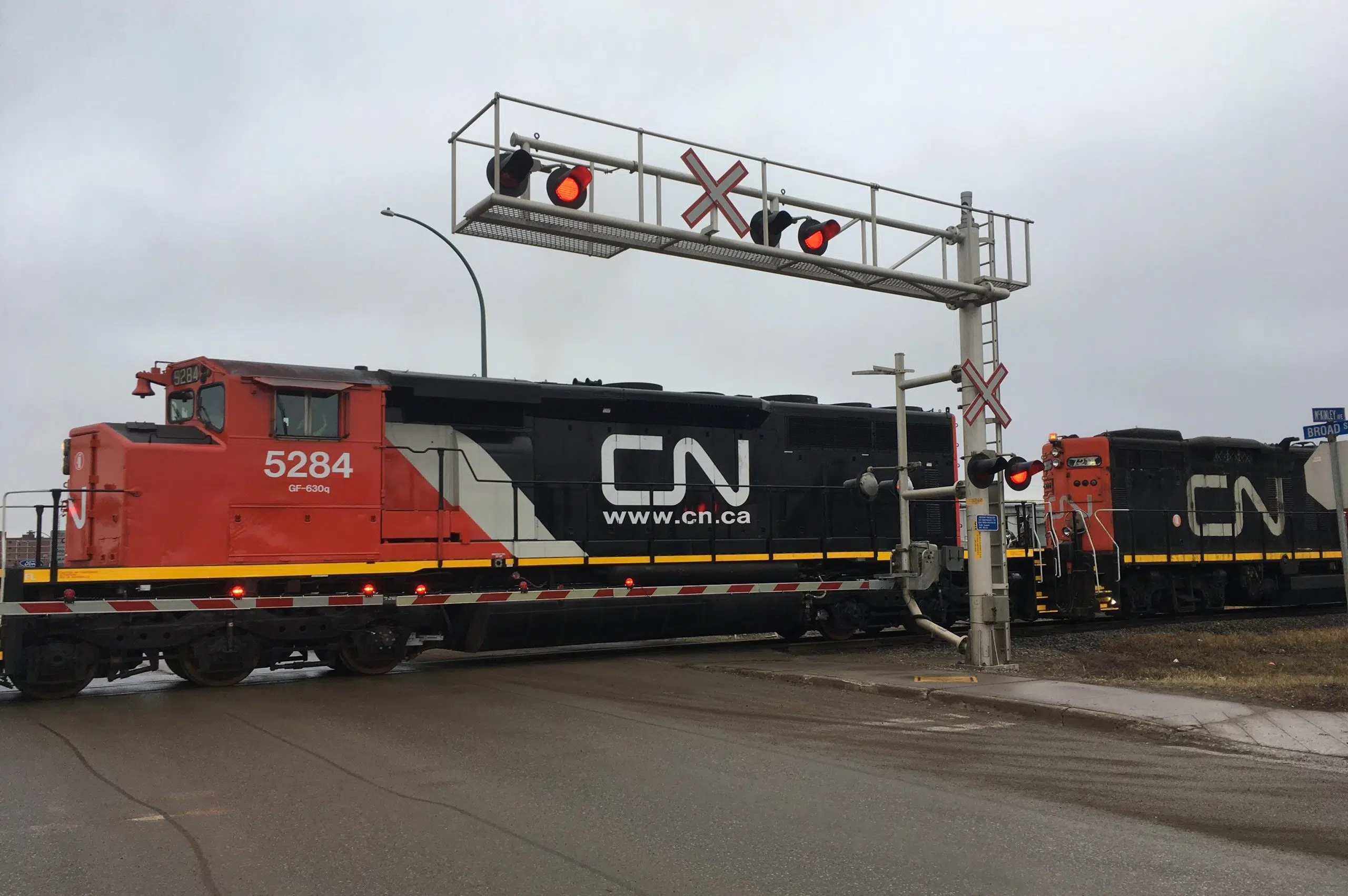As Saskatchewan’s politicians carried on with their business at the legislature, on Monday they were watched by more than 100 members of the local union representing CN Rail workers who were there to make a show of their support.
The provincial government has been vocal about what it feels is a need to get the trains moving again.
“This is absolutely essential for our economy as a province, we are very dependent on rail transportation,” said trade and export minister Jeremy Harrison.
And the provincial government is in favour of getting things moving however possible, including the federal government writing up back to work legislation.
“Ideally that would be through a negotiated agreement between the union and the company, said Harrison. “If not, there is a mechanism for binding arbitration as well. And, ultimately, if there is a need to legislate an end to this work stoppage, that needs to happen.”
Federal agriculture minister Marie-Claude Bibeau didn’t say back to work legislation would be off the table in the future. “Every option is always on the table, but for the time being we hope both parties will get to an agreement” she said Monday while speaking with reporters at Agribition.
Harrison said the strike will be on the agenda for the meeting Premier Scott Moe will have Tuesday afternoon with deputy Prime Minister Chrystia Freeland.
In that rail is a federally regulated industry, Harrison said the province is calling on the national government to step in and help come up with a solution.
Harrison said there are big impacts coming from the strike, pointing to Monday’s announcement that Nutrien is shutting down its Rocanville mine for two weeks and laying off hundreds of workers for that time.
“Ultimately, the economic impacts on this province and the Canadian economy are such that we believe it essential that there is a legislated solution, if necessary as a last resort,” said Harrison.
The CN workers at the legislature don’t agree. John Chalmers is the local chairperson for the union in Saskatoon. After watching Harrison field questions about the strike in the assembly,
Chalmers said the province is putting its economic interests first, over its people.
“These are their constituents, they should be fighting for us not fighting for a company,” said Chalmers.
He said the workers don’t want to be out on the picket line, they want to go back to work and go back to moving all the potash, canola and oil that Saskatchewan’s economy depends on getting to market. But he said they’re also very concerned about worker fatigue, and ultimately safety.
“We don’t want to see anybody not come home. We’ve had four deaths on the railroad already this year and we don’t want any more.”
Chalmers said they want to come to an agreement through bargaining, not arbitration or legislation.
He said he hopes the provincial government will tout some kind of legislation to force CN Rail to bargain with the union, instead of lobbying federal counterparts for a quick end to the dispute.
–With files from 980 CJME’s Evan Radford











